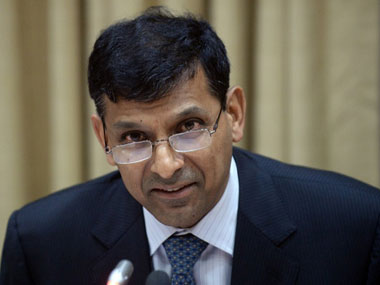When Reserve Bank of India (RBI) governor, Raghuram Rajan, spoke about escaping from the “Licence Permit Raj” only to end up in the ‘Appellate Raj”, it reminds one the governor’s own remarks last year on the risks of excessive judicial oversight on regulatory actions. Excessive intervention from judiciary in the banking system has proved to be a major roadblock for commercial banks to recover money from loan defaulters. “If the government or regulator is less effective in preparing its case than private parties, we ensure that the appellate process largely biases justice towards those who have the resources to use it, rather than rectifying a miscarriage of justice,” Rajan said speaking at the D. D. Kosambi ideas festival in Goa on Friday. “Let me emphasize, we need “checks and balance”, but we should ensure a balance of checks. We cannot have escaped from the License Permit Raj only to end up in the Appellate Raj!,” Rajan said. Now, one can draw different conclusions from this statement, even linking it with RBI’s own reservations against the recommendations of Financial Sector Legislative Reforms Commission (FSLRC) to create super-regulator above all financial sector regulators. But the more pertinent correlation of the “Appellate Raj” can be drawn towards excessive interventions of the judicial system in certain business decisions of commercial banks, while they follow the norms laid by the regulator. One recent example is the December ruling of Kolkata High Court staying the decision of state-run United Bank of India (UBI) to tag liquor-baron Vijay Mallya as a wilful defaulter. A wilful defaulter is a borrower who does not pay back money to the bank even if he has the capacity to do so. Typically, such a scenario arises either due to the diversion of funds from the intended purpose or a case of financial fraud. Once a borrower is tagged as wilful defaulter, the company, its promoters or directors, cannot access the financial system or take charge of operations in any other companies. Mallya, who owes over Rs7,000 crore to a host of banks, was tagged as wilful defaulter after he diverted the bank money from the stated purpose to fund other areas of his business. Even though, banks had conclusively proved that Mallya is indeed a wilful defaulter, the Court ruled in favour of Mallya on technical grounds. [caption id=“attachment_2112695” align=“alignleft” width=“380”]  Raghuram Rajan in a file photo. AFP[/caption] The reason why the court rejected UBI’s argument was that the empowered committee in the bank, which decides the wilful defaulter status of a borrower, had four members instead of the mandated three members under the Reserve Bank of India’s RBI norms. Though United Bank reconstituted the empowered committee subsequently, the decision to classify Mallya as wilful defaulter has, since, “been put in the cold storage” as the chief of the bank was changed, according to a banker in the bank. In effect, Mallya is now technically not a willful defaulter and is free to tap other institutions to borrow further. Banks are unable to take action for any possible recovery of the money. While this is just one instance, there are several other cases where loan defaulters, including ‘wilful defaulters’ have dragged their lenders to Debt Recovery Tribunals and higher Courts, to delay the loan recovery process. Evidently, such prolonged delays are among the reasons why bad loans have surged in the past on the books of Indian banks. Total gross bad loans of Indian banks had risen to Rs 2.8 lakh crore at end December, while there is a significant rise in the chunk of restructured assets as well. Remember, in June last year, Rajan had warned against excessive judicial oversight on the actions of the regulators saying, this can hamper he functioning of regulators. Rajan had then argued that it may be dangerous to ask tribunals to make judgments that they “simply do not have the capability, experience, or information to make, and where precise evidence may be lacking”. Also, such tribunals will “undermine the very purpose of a regulator”, Rajan said, adding that this will imply that people trust the tribunal’s judgment but not that of the regulator. “… past experience suggests that entities like to justify their existence, and if set up, a tribunal will intervene more than necessary,” Rajan said, adding not everything a regulator does can be proven in a court of law. “….a lot of regulatory action stems from the regulator exercising sound judgment based on years of experience. “Not everything the regulator does can be proven in a court of law,” said Rajan, adding that there were a range of decisions where regulatory judgment should not be second-guessed. Rajan’s comments on the risks of moving to “Appellate Raj” should be heard by the government and FSLRC with due seriousness in the interest of the banking system. After all, banks are the guardians of public money.
Rajan’s comments on the risks of moving to “Appellate Raj” should be heard by the government and FSLRC with due seriousness in the interest of the banking system. After all, banks are the guardians of public money.
Advertisement
End of Article


)

)
)
)
)
)
)
)
)



